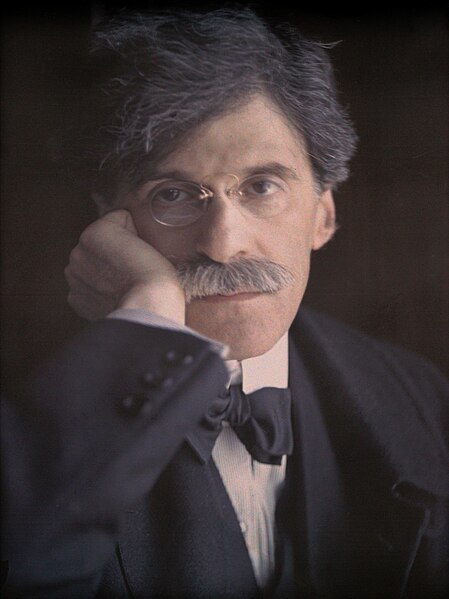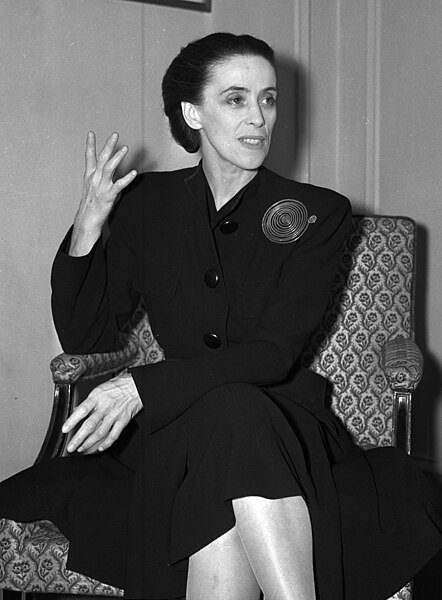Aaron Copland was an American composer, critic, writer, teacher, pianist and later a conductor of his own and other American music. Copland was referred to by his peers and critics as the "Dean of American Composers". The open, slowly changing harmonies in much of his music are typical of what many people consider to be the sound of American music, evoking the vast American landscape and pioneer spirit. He is best known for the works he wrote in the 1930s and 1940s in a deliberately accessible style often referred to as "populist" and which the composer labeled his "vernacular" style. Works in this vein include the ballets Appalachian Spring, Billy the Kid and Rodeo, his Fanfare for the Common Man and Third Symphony. In addition to his ballets and orchestral works, he produced music in many other genres, including chamber music, vocal works, opera and film scores.
Aaron Copland
Aaron Copland School of Music, Queens College (part of the City University of New York)
Nadia Boulanger in 1925
Copland admired the work and philosophy of Alfred Stieglitz
Appalachian Spring is an American ballet created by the choreographer Martha Graham and the composer Aaron Copland, later arranged as an orchestral work. Commissioned by Elizabeth Sprague Coolidge, Copland composed the ballet music for Graham; the original choreography was by Graham, with costumes by Edythe Gilfond and sets by Isamu Noguchi. The ballet was well received at the 1944 premiere, earning Copland the Pulitzer Prize for Music during its 1945 United States tour. The orchestral suite composed in 1945 was played that year by many symphony orchestras; the suite is among Copland's best-known works, and the ballet remains essential in the Martha Graham Dance Company repertoire.
Martha Graham, c. 1940
Isamu Noguchi's set
Themes of war, particularly the American Civil War, are present throughout Appalachian Spring.







